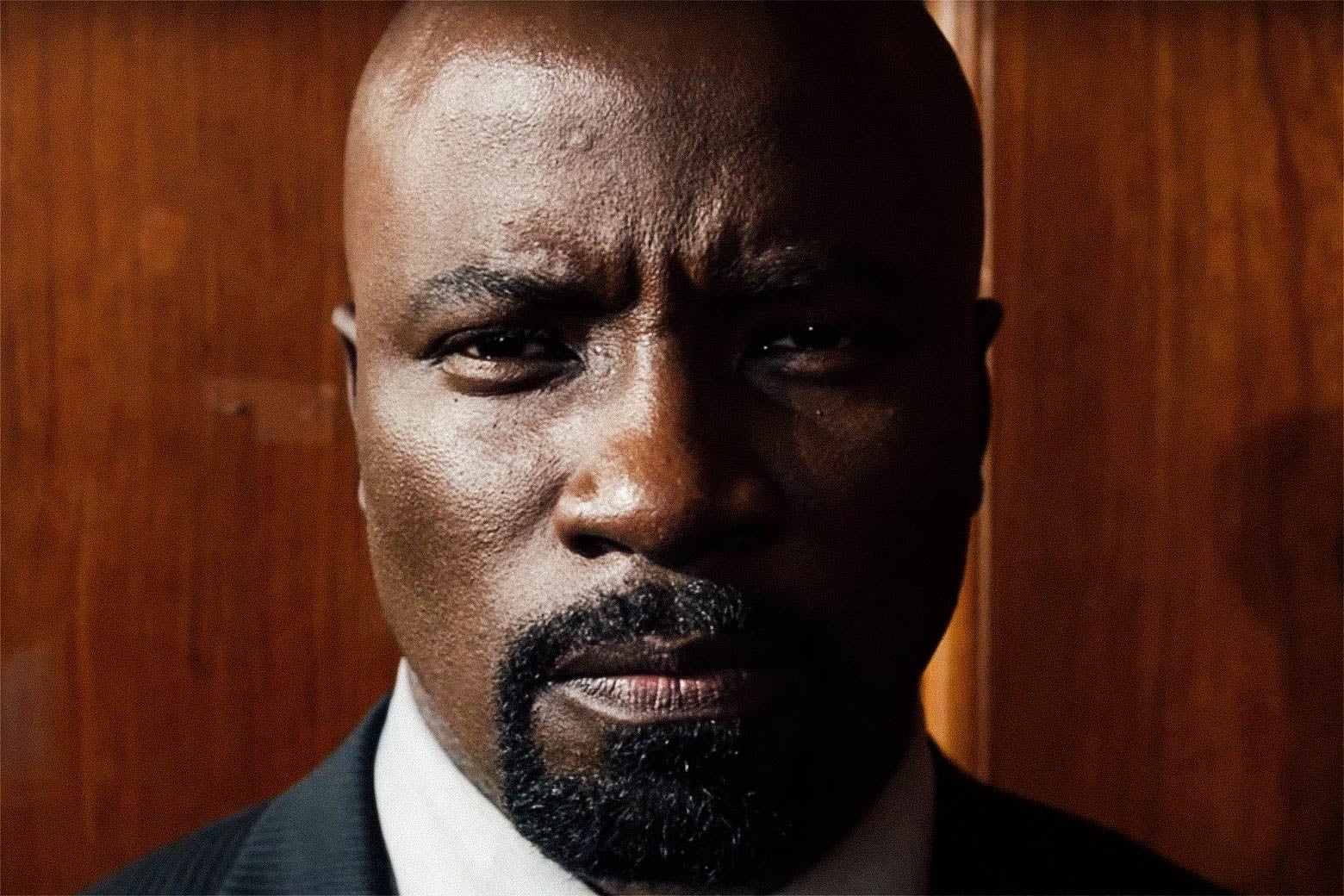In September 2016, Netflix did something that was then seen as risky: It released the first major superhero show populated almost exclusively by black characters. One would understand if executives were nervous and chose to play it safe. Instead, in an already volatile cultural climate dominated by discussions of police shooting unarmed black men and the Black Lives Matter hashtag born in the wake of these injustices, they put out a show that featured a bulletproof, and oft-shot, black man wearing a hoodie—an aesthetic comment on the death of Trayvon Martin. Instead of ignoring the growing influence of Black Lives Matter activists or merely gesturing toward their existence, this was a show that chose to lean into the movement—going so far as having Alfre Woodard’s character, Mariah Dillard, say the slogan 30 minutes into the first show. It was a bold move for Netflix and the show’s corporate co-parent, Disney, a media conglomerate not known for its willingness to take chances. And it set the stage for what was to come 17 months later in February 2018, when the world took a trip to Wakanda. Yet, many forget that before Black Panther broke box-office records, Luke Cage broke Netflix.
In its second season, and a very different cultural climate, Marvel’s examination of what would happen if a black man in the inner city had superpowers is, whether intentionally or not, in conversation with Marvel’s film featuring an African king. One thing it shows is that there is more than one way to use music to tell a story about a black character in this universe.
Black Panther reminded me of black films that came out in the ’90s. Like them, it featured an incredible soundtrack showcasing some of the best that black music had to offer. Hip-hop permeated the score and provided the background to many of the scenes, but in Boyz N the Hood and Menace II Society, few characters in the film actually seemed to listen to the music. Luke Cage does things differently.
“For me, everything in this show starts with the music,” Cheo Hodari Coker, showrunner and former hip-hop journalist, said in an interview from the Season 2 press note. “It begins by selecting the song titles that become the episode names which in turn impact my idea of structure and become touchstone storylines for me. This season, I chose songs by Pete Rock and CL Smooth; and, like Gangstarr last season, these are artists I interviewed in their prime.”
Coker understands that an important part of fully appreciating black music is showing how listening to the music inspires a physical reaction. It might be dancing (as illustrated by the scenes in Harlem’s Paradise, a club that has the best music-booker of all time) or reacting to the vibe the music creates (like when Luke Cage puts on headphones before every fight). He further shows that black music exists on a continuum and gives extended time in almost every episode to black musicians representing the history of black music in America. There are blues guitarists like Gary Clark, Jr., R&B soul singers like Joi, and hip-hop legends like Ghostface Killa—not to mention the indomitable Rakim, who created new music that is featured in the Season 2 finale. This is a show that understands the centrality of music in day to day life of black folks, but it’s not only music that puts Luke Cage in conversation with Black Panther. It also shows us that black anger is not limited to the African and African American experience.
Michael B. Jordan’s N’Jadaka (Killmonger) is unquestionably the best thing about Black Panther. His anger with the leadership of Wakanda and his love for those he saw as his people (mostly men, apparently, given the violence he inflicted upon black women) was evident. Luke Cage has a villain in a similar vein with John McIver, a Jamaican crime boss known as Bushmaster. With both characters, there is an understanding of one’s connection with those who have come before—and a drive to avenge the past.
Mustafa Shakir is quietly menacing as the primary villain of the season, but as the story develops, we learn that Bushmaster, like Jordan’s N’Jadaka, has family trauma at the center of his motivations. Like Killmonger, Bushmaster feels that he was denied his birthright; however, unlike the struggle that ensued for Wakanda, Luke Cage is not the enemy; he is just in the way of Bushmaster’s quest for vengeance. The motivations of these characters mirror each other in ways that deepen their humanity while moving the narrative forward. Bushmaster and Killmonger are what make these stories work, and both Black Panther and Luke Cage show that the black experience, whether in America or the motherland, is rich with potential for future storytelling.
I don’t know if Cheo Hodari Coker intended to put Season 2 of Luke Cage in conversation with Black Panther. Yet, intentional or not, Marvel’s show about a superhero serves as a fascinating counterpoint to Marvel’s film about the king of Wakanda.
